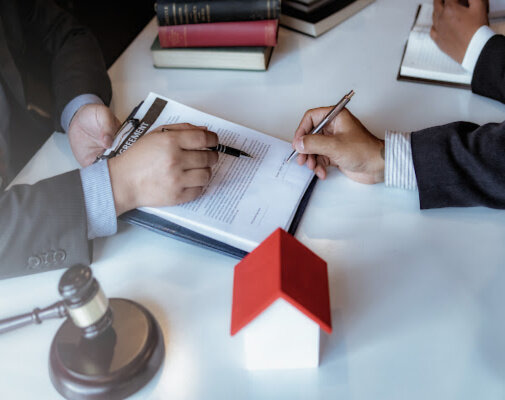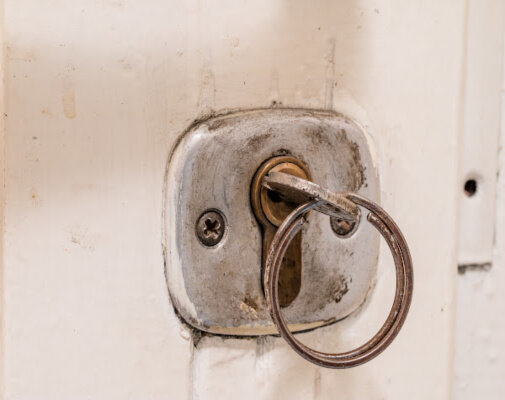Understanding The Definition Of A Squatter: What You Need To Know
A squatter is someone who resides in a property without the legal right or permission to do so. In New York, the definition of a squatter is outlined in the state’s adverse possession law, which allows individuals to gain ownership of a property if they have continuously occupied it for at least 10 years.
However, this does not mean that squatters can simply take over someone else’s home without consequences. Homeowners should understand that there are certain criteria that must be met for adverse possession to apply and that illegal occupation of a property can result in legal action.
It is important for homeowners to educate themselves on the definition of a squatter and their rights as property owners to protect their homes from potential squatting situations.
Table Of Contents
1. Understanding The Definition Of A Squatter: What You Need To Know
2. Navigating New York’s Squatting Laws
3. Protecting Homeowners: The Fight Against Squatters In New York
4. Debunking The Myths: Is Squatting Really Just Trespassing?
5. The Eviction Process For Squatters In New York: What You Need To Know
6. How To Protect Yourself From Squatters In NY?
7. What Is Adverse Possession In New York?
Navigating New York’s Squatting Laws

Squatting has become a growing concern in New York City, with many homeowners finding themselves in a legal battle to protect their property. While squatters may claim “adverse possession” or “squatting rights,” it is essential for homeowners to understand the laws surrounding this issue.
In New York, the law states that a person can only acquire adverse possession of property after 10 years of continuous and uninterrupted use. Additionally, the individual must have openly and notoriously occupied the property without the owner’s permission.
Additionally, homeowners should be informed that squatting is illegal and that they can file a lawsuit against anyone found trespassing on their land. To preserve their rights as property owners, homeowners must carefully read these laws and, if necessary, seek legal advice. If a seller wants to cancel a home sale, it’s important to understand the legal steps involved and consult with a real estate professional to avoid potential legal repercussions.
Stay Informed With These Recent Headlines On Squatting In NY
Homeowners in NY must keep up with the constantly changing rules and legislation pertaining to squatters’ rights in the state. Recent news reports claimed that a more recent statute increases rights for renters who are facing eviction, including squatters.
This follows a controversial court ruling that overturned a longstanding precedent allowing landlords to evict squatters without going through the lengthy legal process. Additionally, there have been discussions about implementing stricter penalties for landlords who try to illegally evict squatters by changing locks or shutting off utilities.
In order to prevent future legal problems, it is essential for homeowners to be aware of their rights and obligations when it comes to managing squatters on their property.
Protecting Homeowners: The Fight Against Squatters In New York

In New York, squatters have grown to be a significant problem for homeowners as, in the event that the homeowner fails to take appropriate legal action, they may seize and claim ownership of a property. As a result, there is currently a conflict between squatters and homeowners as the former is attempting to defend their houses and rights.
In order to combat this problem, it is important for homeowners to understand their rights and take necessary precautions. One key aspect is knowing the laws surrounding squatters’ rights in New York and how they differ from traditional landlord-tenant laws.
Additionally, homeowners need to be alert to warning indicators like abandoned buildings or uninvited guests residing on their land. NY squatters can be avoided by homeowners by education and prompt action when necessary.
Who Exactly Are Squatters And How Do They Operate?
Squatters are individuals who occupy a property without legal permission or right. In New York, squatters are becoming an increasingly prevalent issue for homeowners.
These people frequently take advantage of dilapidated or abandoned properties and turn them into residences without paying rent or getting the required permissions. Their method of operation is locating empty buildings, locking them, and reclaiming the area.
Some may even go to extreme lengths by forging documents or creating fake leases to solidify their claim on the property. Squatters can be difficult to remove once they have established themselves in a property, causing frustration and financial strain for homeowners who may have to go through lengthy legal processes to regain possession of their property.
In order to prevent these uninvited tenants from occupying their property, it is imperative that homeowners in New York understand their rights and the laws pertaining to squatters.
Debunking The Myths: Is Squatting Really Just Trespassing?

There are many misconceptions surrounding squatters’ rights in New York, leading to confusion and fear for homeowners. One of the most common myths is that squatting is simply trespassing and can be easily resolved by calling the police.
However, this is not always the case. In New York, squatters can acquire legal rights to a property if they meet certain criteria, such as living there for a certain period of time without the owner’s permission.
This means that simply asking them to leave may not be enough. It is important for homeowners to understand the intricacies of squatters’ rights in order to protect their property and avoid potential legal battles.
Exploring The Legal Basis For Squatters’ Rights
Squatters’ rights have been a contentious topic in New York for many years. These rights allow individuals who have occupied a property without the owner’s permission to potentially gain legal ownership of the property.
However, New York’s squatters’ rights have a complicated and wide-ranging legal foundation. Its main source is adverse possession rules, which provide someone the right to assert ownership of a piece of land if they have lived there openly and persistently for a predetermined amount of time.
Additionally, there are certain criteria that must be met for squatters’ rights to be considered valid, such as the squatter having no prior knowledge of the true owner or actively improving the property. The interpretation and application of these laws can vary depending on the specific circumstances, making it crucial for homeowners to understand their rights and take necessary precautions to protect their property.
Steps To Claiming Squatters’ Rights In New York State
In order to claim squatters’ rights in New York State, there are several steps that homeowners need to follow. The first step is to establish residency by living on the property continuously for a certain period of time, usually 10 years.
During this time, the homeowner must also make improvements and maintain the property as their own. Next, homeowners must prove that they have been in exclusive possession of the property without interruption from the actual owner.
This can be done through documents such as utility bills or tax statements. Additionally, it is important for homeowners to demonstrate that they have been using the property openly and notoriously, meaning without trying to hide their occupancy.
Lastly, during their habitation, landowners are required to provide proof that they have been paying all appropriate taxes on the property. In New York State, homeowners may be able to effectively assert squatters’ rights by following these procedures.
Keeping Your Property Safe From Squatters: Prevention Strategies
As a homeowner in NY, it is important to understand the laws surrounding squatters’ rights and how they can impact your property. While squatters may have certain legal protections, there are steps you can take to prevent them from taking over your property.
One key strategy is to regularly check on any vacant properties you own and make sure they are secured with locks and alarms. It is also important to keep your property well-maintained and make it clear that it is being actively used or monitored.
Additionally, keep an eye out for any unusual activities and anyone trying to enter your property without authorization. You may easily keep possible squatters away from your property by being proactive and adopting the appropriate precautions.
The Eviction Process For Squatters In New York: What You Need To Know

Squatters’ rights in New York have been a topic of much debate and confusion among homeowners. While many people are aware that squatters have certain legal protections, understanding the eviction process can be complex and overwhelming.
In New York, squatters are considered trespassers and do not have any rights to the property they are occupying. However, if they have been living on the property for a certain amount of time and can prove that they have made improvements or investments into the property, they may be able to claim adverse possession.
This implies that if the homeowner does not move to evict the squatter within a certain amount of time, they may eventually become the legal owners of the land. To save their property from possible loss, homeowners should be aware of their rights and act quickly in squatting situations.
Breaking Down The Complexities Of Squatters Rights In New York State
Squatters rights in New York State have been a source of confusion and controversy for homeowners. Understanding the complexities of these laws is crucial for property owners to protect their rights.
Squatting refers to the act of occupying someone else’s property without permission or legal right. In New York, squatters can gain legal possession of a property if they meet certain criteria, such as living on the property continuously for at least 10 years and paying taxes on it.
There are certain exceptions to these regulations, though, so homeowners need to be informed of their rights and any dangers. It is crucial that property owners get legal counsel and take the required precautions to keep squatters off their land.
Staying Up-to-date With The Latest Posts On Squatting
As a homeowner in New York, it is important to stay informed about the latest updates and posts regarding squatters’ rights. Squatting, which is the act of occupying an abandoned or unoccupied property without permission, can have serious consequences for homeowners.
It is crucial to understand the laws and regulations surrounding this issue in order to protect your property. By staying up-to-date with the latest posts on squatting, you can stay informed about any changes in legislation or cases that may impact homeowners’ rights.
This knowledge can help you take necessary precautions and actions to prevent squatting on your property. Additionally, regularly checking for updates can also provide you with valuable information on how to handle a situation if you do find yourself dealing with squatters.
Can You Evict A Squatter In NY State?
New York State has seen a rise in squatters’ rights cases, leaving many homeowners wondering if they can legally evict these unauthorized occupants from their property.
The answer is not a simple yes or no, as it depends on various factors such as the length of time the squatter has been living in the property and if they have established any legal rights.
Understanding the nuances of squatters’ rights in New York is essential for homeowners who must successfully navigate through complicated laws and procedures in order to evict a squatter from their property.
How To Protect Yourself From Squatters In NY?
![home owner and squatters in [maket_city]](https://image-cdn.carrot.com/uploads/sites/46075/2024/05/home-owner-and-squatters.jpg)
As a homeowner in New York, it is crucial to understand the laws surrounding squatters’ rights in order to protect yourself from potential legal and financial repercussions. Squatting, the act of occupying someone else’s property without permission, has become an increasingly prevalent issue in major cities like New York.
To safeguard your property from squatters, it is important to maintain regular occupancy and upkeep of your home, clearly mark your property boundaries, and promptly address any signs of trespassing or unauthorized occupation. It is also recommended to consult with a legal professional to fully understand your rights as a homeowner and take necessary precautions, such as creating a lease agreement for any tenants or subletters.
Being aware of your rights as a squatter in New York and taking the initiative will help you keep the integrity of your home intact and prevent future problems.
What Is Adverse Possession In New York?
In New York, a legal doctrine known as “adverse possession” permits someone to take ownership of a piece of property by occupying it for a predetermined amount of time without the owner’s consent. This is sometimes known as squatters rights, and it can be difficult for homeowners to understand.
In order for adverse possession to apply, the occupant must openly and notoriously use the property as their own, continuously and exclusively, for at least 10 years. Additionally, they must also pay all taxes on the property during this time.
However, there are certain exceptions and limitations to this law, making it crucial for homeowners in NY to understand their rights and take necessary steps to protect their property from potential adverse possession claims.
| SQUATTERS’ RIGHTS | HOSTILE POSSESSION | SQUATTER’S RIGHTS | OPEN AND NOTORIOUS | NYC | THE STATE OF NEW YORK |
| INBOX | NOTICE TO VACATE | EVICTED | RENTER | RENTAL | REAL ESTATE |
| REAL ESTATE LAW | LEASING | QUEENS | PRIVACY | QUIET TITLE | CONSENT |
| PALADINO | VICKIE PALADINO | SEN. | SHERIFF | REAL PROPERTY | PROPERTY TAXES |
| PROPERTY MANAGER | MANAGEMENT | ATTORNEY | LAWYER | JUDGMENT | JUDGE |
| BLUMENCRANZ | JAKE BLUMENCRANZ | INVESTING | DEED | COMPLAINT | WARRANT |
| AMERICAN | THIEVES | THEFT | SUMMONS | SECURITY | RENTAL AGREEMENTS |
| REAL ESTATE INVESTMENTS | REAL ESTATE INVESTING | PROPERTY MANAGEMENT | POLICE OFFICER | PETITION | NEW YORK POST |
| THE NEW YORK POST | LEGAL LOOPHOLES | LOOPHOLES | LEGISLATURE | FLUSHING | EYEWITNESS NEWS |
| EXPERIENCE | DREAM | DOUGLASTON | DOOR | THE BURDEN OF PROOF | APARTMENT |
| THE NEW YORK | NEW YORK SQUATTERS | THE PROPERTY OWNER | TO PREVENT SQUATTERS FROM |
Sell Your New York Property Fast for Cash
We buy houses in ANY CONDITION in New York. We’ll get you an offer on your home in 24 hours. Start below by giving us a bit of information about your property or call (585) 294-4658…


